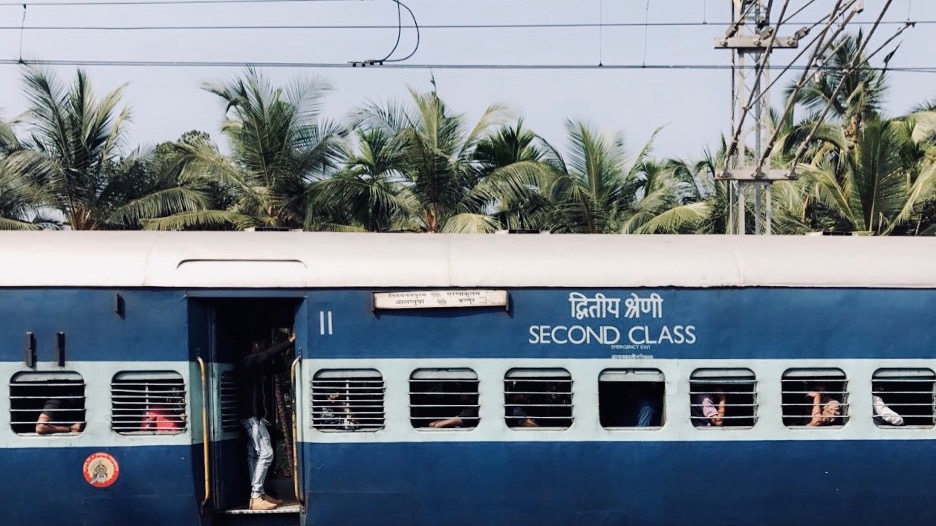How will Bangladesh’s nationwide lockdown impact upon Rohingya refugees in Cox’s Bazar? Mabrur Ahmed (Restless Beings) explains how applying methods of social distancing in Bangladesh will leave 1.1 million Rohingya refugees alone to survive without food and basic hygiene items in one of the most poorly equipped healthcare systems in the world.
Since the Bangladesh government announced its nationwide lockdown on 25 March, panic has gripped communities across the country. The lockdown included instructions for every aid agency and worker to vacate the Rohingya refugee camps in Kutupalong in Cox’s Bazar, a decision that has left the refugee community shocked, fearful and concerned over their immediate futures.
This picture is not too dissimilar to many other communities across Bangladesh who survive hand-to-mouth and do not have the means and access to isolate, as per the government’s instruction. This is also not different to how many migrant worker communities might feel across the length and breadth of South Asia as administrations have announced closures of India, Pakistan and Bangladesh with little or no notice. As a result, we have seen images this week of migrant workers having to walk 800-1,000km to reach home from their cities of work in India; upon their return authorities have also been documented physically disinfecting groups of migrants with hoses in the most demeaning way possible.
Across Dadaab and Idlib, and countless other refugee camps, the fear of the unseen virus fuelled by a lack of adequate information, and virtually zero preparedness, means that the most vulnerable in our 7 billion strong global family find themselves at the greatest risk once again.
In fact, the majority of the response by governments in the global south has been to mimic their wealthier, better healthcare-yielding counterparts across Europe and North America. The notion of social distancing and isolation doesn’t work in a refugee camp where homes are often constructed of bamboo and plastic sheets 4x4m in size, with an average of seven people to a home. The privilege of regularly washing hands, which European administrations have been advising, is not possible when refugee communities are relying on communal taps where the contamination and spread of infection cannot be abated because of the high number of users. It is just not feasible for a Rohingya refugee community numbering 1.1 million to be ordered not to leave their homes. Combined with the local Cox’s Bazar population, the two groups between them have only one medical facility during this crisis, within which there are just two ventilators.
Currently the entire world’s thought process and reaction has been through the privileged lens of the global north – social distancing, increased hygiene, stockpiling of food and support for health care systems. It hasn’t worked in USA, Italy, France, Spain and in the UK – it’s unlikely to work in countries where those steps are simply not feasible.
But the biggest fear for so many in Bangladesh at this time is food scarcity. The lack of access to food and the length of time that these communities may have to face without food could claim many times more lives than from Covid-19. The Rohingya, for example, now have a total insecurity of food, not knowing when an aid agency will be able to deliver food. They have been stripped of internet communication since September 2019, they are not allowed to work and earn money, and now their food sources have been suspended.
But it’s possible to avert this crisis, not just for the Rohingya but virtually every refugee community in the world, as well as nearly every hand-to-mouth migrant and manual labourer left stranded by this crisis. The following three steps are crucial to saving the most vulnerable lives during this epidemic.
Individual protection of populations
Essential hygiene items such as soap, access to clean water, protective items such as face masks and gloves etc., are all needed in huge numbers. Moreover, continued and asserted efforts to increase the awareness and therefore preparedness within communities for Covid-19 needs to be urgently implemented.
Enabling more effective health facilities
One of the major issues every nation is facing due to Covid-19 is a lack of health facilities to serve large populations. Moreover, these facilities are poorly equipped and as a result healthcare workers cannot and will not treat patients (with Covid-19 or other diseases) due to fear of infection. An immediate supply of PPE (personal protective equipment) is needed for these front-line health workers and doctors. Restless Beings has begun working in this area, attempting to provide Cox’s Bazar Medical College with 200 PPE packs for health care workers.
Tacking food scarcity
Refugee populations will find themselves at the bottom of the world’s priority list when countries strategise over how to feed their populations. Migrant labourers, manual labourers and refugees do not have access to money to stockpile, they don’t have fridges and freezers, and they don’t have the space to store food. Bangladesh is already seeking assistance from aid agencies to feed its large 160 million population – the 1.1 million Rohingya who have even more limited access, even more isolated from the world via the internet ban, with even less chance of fending for themselves because of their inability to work, with even worse access to healthcare, as they are stranded a minimum of 2 hours away from the nearest medical facility, will find themselves bottom of this list.
Restless Beings have recently issued an urgent appeal for support for the Rohingya refugees for access to soap, clear water and protective medical items; and for Personal Protective Equipment for Bangladeshi healthcare workers.
This article gives the views of the author, and not the position of the South Asia @ LSE blog, nor of the London School of Economics. Featured photo: Rohingya Camps in Cox’s Bazar. Credit: Mohammad Tauheed, Flickr, Creative Commons.







